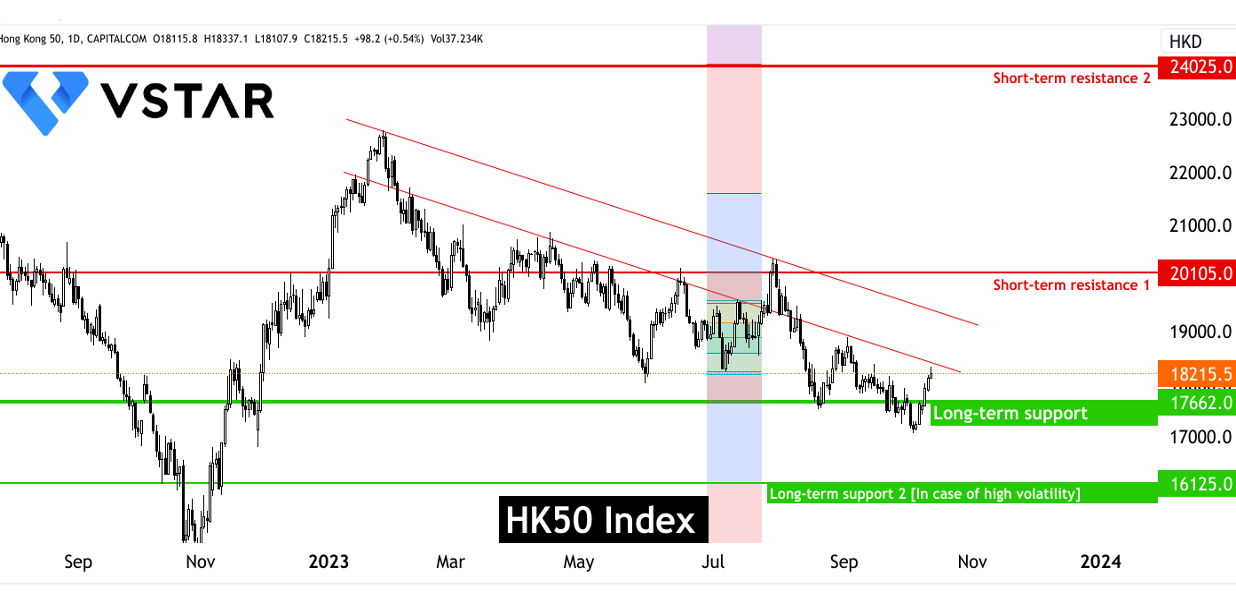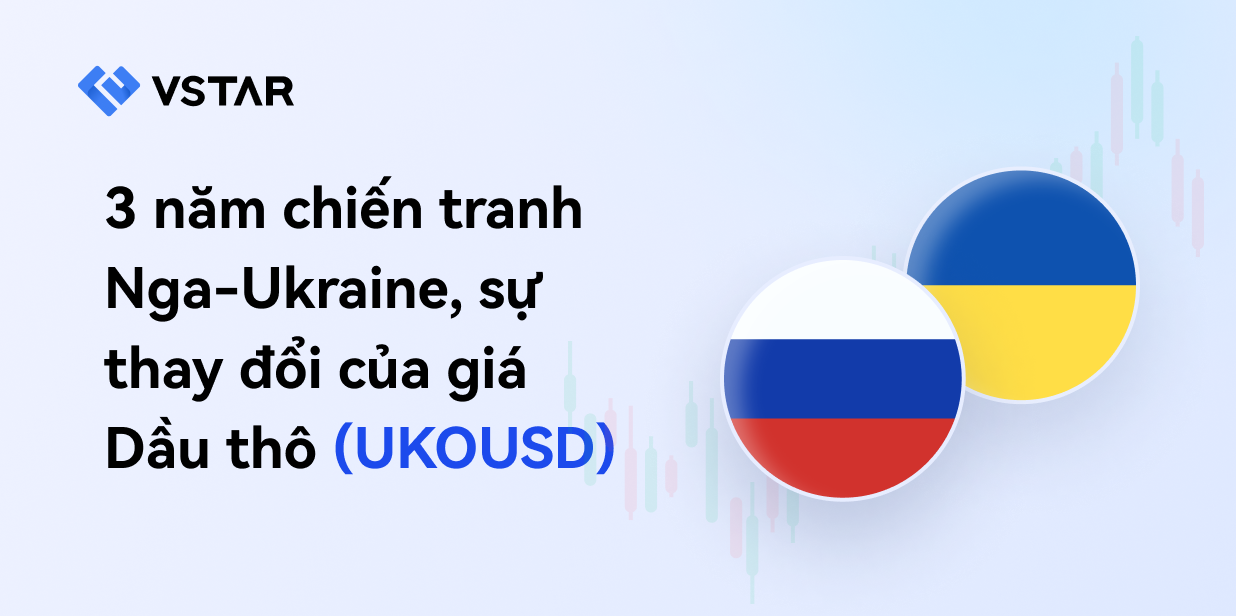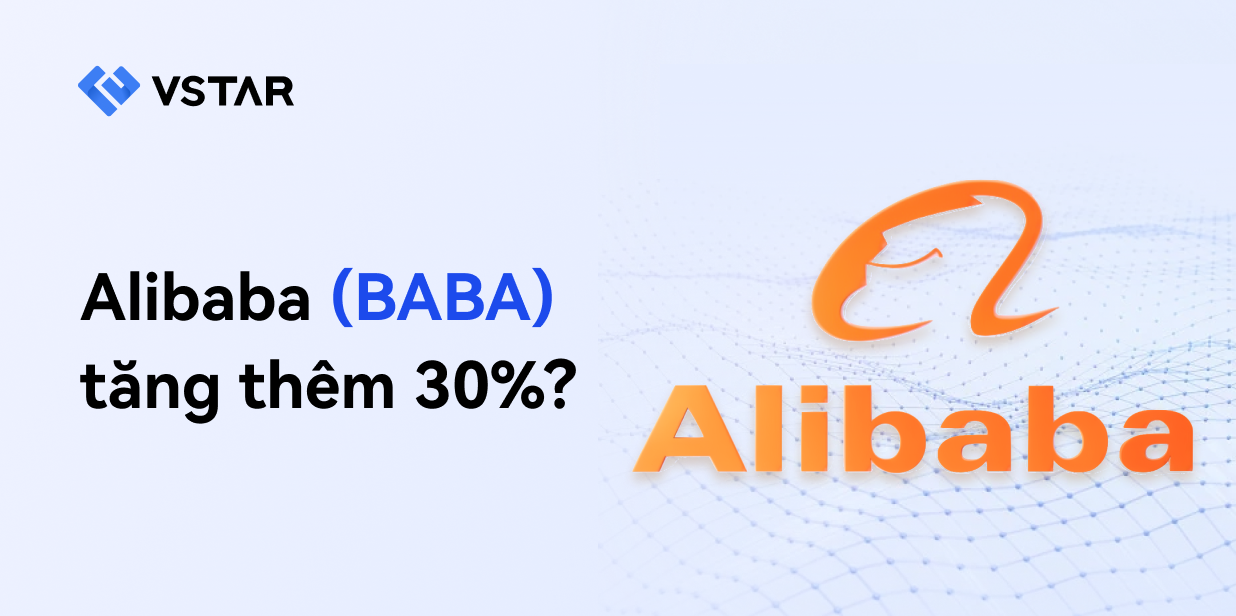Chỉ số Hang Seng (HK50), là chỉ số theo dõi hoạt động của Sở giao dịch chứng khoán Hồng Kông, bị ảnh hưởng bởi vô số yếu tố, cả trong nước và quốc tế. Một trong những yếu tố quyết định chính đến hiệu quả hoạt động của nó là tình trạng địa chính trị toàn cầu, quan hệ thương mại và sự ổn định kinh tế. Phân tích này đi sâu vào những phát triển gần đây trong quan hệ Mỹ-Trung, cạnh tranh công nghệ, vai trò của Trung Quốc trong việc kiến tạo hòa bình toàn cầu và Sáng kiến Vành đai và Con đường, với trọng tâm cụ thể là tác động tích cực của chúng đối với Chỉ số HK50.
Một trong những yếu tố quan trọng nhất ảnh hưởng đến hiệu suất của Chỉ số HK50 là tình trạng quan hệ giữa Hoa Kỳ và Trung Quốc. Là hai siêu cường kinh tế, sự tương tác của họ có tác động lan tỏa trên thị trường tài chính toàn cầu. Tuyên bố gần đây của Nicholas Burns, đại sứ Mỹ tại Trung Quốc, cho thấy giọng điệu tích cực hơn trong quan hệ Mỹ-Trung.
Burns nhấn mạnh tầm quan trọng của việc liên tục liên lạc và sự cần thiết để cả hai quốc gia tìm cách hướng tới "hòa bình và cùng tồn tại" bất chấp sự cạnh tranh ngày càng gia tăng. Việc cả hai quốc gia thừa nhận nhu cầu chung sống hòa bình là một dấu hiệu mang tính xây dựng cho nền kinh tế toàn cầu và nói rộng hơn là Chỉ số HK50.
Thuật ngữ “đối thủ lớn nhất” được Burns sử dụng nhấn mạnh tầm quan trọng của mối quan hệ Mỹ-Trung trong bối cảnh toàn cầu. Căng thẳng leo thang hoặc mối quan hệ này xấu đi có thể dẫn đến bất ổn kinh tế và biến động thị trường. Ngược lại, một mối quan hệ ổn định và hợp tác có nhiều khả năng tạo ra môi trường thuận lợi cho tăng trưởng kinh tế và ổn định thị trường.
Một diễn biến quan trọng hỗ trợ thêm cho tâm lý tích cực về quan hệ Mỹ-Trung là chuyến thăm của phái đoàn lưỡng đảng Thượng viện Mỹ tới Trung Quốc. Sự đại diện lưỡng đảng này cho thấy sự đồng thuận giữa các đảng chính trị lớn của Hoa Kỳ nhằm cải thiện quan hệ với Trung Quốc. Cách tiếp cận lưỡng đảng giúp nâng cao khả năng dự đoán chính sách của Mỹ đối với Trung Quốc, điều này rất quan trọng đối với thị trường. Nó cho thấy mức độ ổn định và nhất quán trong tương tác thương mại và ngoại giao, điều này có thể củng cố niềm tin của nhà đầu tư và tác động tích cực đến Chỉ số HK50.
Cạnh tranh công nghệ và quân sự: Cơ hội đổi mới
Tuyên bố của Burns cũng thu hút sự chú ý đến cuộc cạnh tranh công nghệ và quân sự giữa Mỹ và Trung Quốc. Mặc dù những lĩnh vực này có thể là nguồn gây căng thẳng nhưng chúng cũng mang lại cơ hội đổi mới và tăng trưởng kinh tế. Công nghệ là trung tâm của cuộc cạnh tranh này, khi cả hai quốc gia đều phấn đấu giành ưu thế không chỉ về ứng dụng thương mại mà còn về năng lực quân sự.
Cuộc chạy đua công nghệ này có thể có tác động đáng kể đến các công ty niêm yết trên Chỉ số HK50. Hồng Kông có nhiều công ty tập trung vào công nghệ và đổi mới, đồng thời nhu cầu ngày càng tăng về công nghệ tiên tiến có thể thúc đẩy tăng trưởng doanh thu cho các công ty này.
Hơn nữa, các hạn chế công nghệ do Mỹ áp đặt đối với Trung Quốc, bao gồm lệnh cấm xuất khẩu chất bán dẫn và đầu tư công nghệ, có thể gián tiếp mang lại lợi ích cho các công ty công nghệ bên ngoài Trung Quốc. Các nhà đầu tư đang tìm kiếm giải pháp thay thế cho các công ty công nghệ Trung Quốc có thể chuyển sang các công ty có trụ sở tại Hồng Kông, góp phần tạo nên tiềm năng tăng giá của Chỉ số HK50.
Tầm quan trọng của cạnh tranh công nghệ giữa Mỹ và Trung Quốc vượt ra ngoài các ứng dụng thương mại. Ý nghĩa quân sự cũng đang diễn ra khi Burns nhấn mạnh cam kết của Mỹ trong việc duy trì ưu thế quân sự của mình ở khu vực Ấn Độ Dương - Thái Bình Dương. Các công ty liên quan đến công nghệ quốc phòng và quân sự ở Hồng Kông có thể có nhu cầu gia tăng và triển vọng tăng trưởng.
Những nỗ lực hòa bình và vai trò toàn cầu của Trung Quốc: Ảnh hưởng ổn định
Những nỗ lực của Trung Quốc trong việc khẳng định mình là nước tạo dựng hòa bình và hòa giải toàn cầu trong các xung đột quốc tế là rất đáng chú ý. Khả năng Trung Quốc góp phần giải quyết xung đột toàn cầu có thể có tác động ổn định nền kinh tế toàn cầu, điều này có thể mang lại lợi ích cho Chỉ số HK50.
Một trong những xung đột được nhắc tới là cuộc chiến Israel-Hamas. Burns bày tỏ sự thất vọng với phản ứng hoặc sự thiếu phản ứng của Trung Quốc đối với cuộc xung đột. Sự tham gia của Trung Quốc vào các nỗ lực kiến tạo hòa bình ở Trung Đông, bao gồm cả nỗ lực của nước này nhằm môi giới cho việc nối lại quan hệ hữu nghị giữa Ả Rập Saudi và Iran cũng như sự ủng hộ của nước này đối với giải pháp hai nhà nước, là một dấu hiệu tích cực. Nếu những nỗ lực này dẫn đến một Trung Đông hòa bình và ổn định hơn, nó có thể giảm thiểu rủi ro địa chính trị và góp phần tạo ra môi trường đầu tư thuận lợi hơn.
Ngoài Trung Đông, Trung Quốc cũng tham gia vào các nỗ lực hòa giải ở Ukraine. Thành công của những nỗ lực này có thể có ý nghĩa rộng lớn hơn đối với sự ổn định và tăng trưởng kinh tế toàn cầu. Nếu Trung Quốc có thể góp phần giải quyết xung đột một cách hòa bình, điều này sẽ làm giảm bớt căng thẳng địa chính trị và giảm nguy cơ gián đoạn kinh tế, từ đó mang lại lợi ích cho Chỉ số HK50.
Vai trò của Trung Quốc trong việc kiến tạo hòa bình toàn cầu cũng gắn liền với mối quan hệ của nước này với các cường quốc khác. Burns chỉ trích mối quan hệ của Trung Quốc với Nga và đặt câu hỏi về sự khôn ngoan khi tuyên bố mối quan hệ "không giới hạn" với Nga. Sự năng động giữa các quốc gia này có thể có tác động đáng kể đến bối cảnh địa chính trị toàn cầu. Nếu những nỗ lực ngoại giao của Trung Quốc giúp giảm căng thẳng và duy trì hòa bình giữa các cường quốc, điều đó có thể tạo ra một môi trường thuận lợi hơn cho tăng trưởng kinh tế và thương mại toàn cầu.


Sáng kiến Vành đai và Con đường: Thúc đẩy hợp tác kinh tế
Việc Trung Quốc tiếp tục cam kết với Sáng kiến Vành đai và Con đường là một yếu tố khác có thể ảnh hưởng tích cực đến Chỉ số HK50. Dự án phát triển kinh tế và cơ sở hạ tầng đầy tham vọng này trải dài trên nhiều quốc gia và khu vực, thúc đẩy hợp tác và đầu tư kinh tế.
Sáng kiến Vành đai và Con đường có tiềm năng tăng cường các hoạt động kinh tế và thương mại, mang lại lợi ích không chỉ cho Trung Quốc mà còn cho các quốc gia dọc theo tuyến đường Vành đai và Con đường. Là một trung tâm tài chính lớn trong khu vực, Hồng Kông có vị trí thuận lợi để hưởng lợi từ sự tương tác kinh tế và đầu tư ngày càng tăng mà sáng kiến này mang lại.
Diễn đàn Hợp tác Quốc tế Vành đai và Con đường của Trung Quốc, kỷ niệm 10 năm sáng kiến, dự kiến sẽ có sự tham gia của nhiều nhà lãnh đạo và đại diện toàn cầu, bao gồm cả Tổng thống Nga Vladimir Putin. Diễn đàn này có thể là chất xúc tác để tăng cường hợp tác kinh tế và đầu tư trong khu vực, điều này có thể tác động tích cực đến Chỉ số HK50.
Giải pháp thay thế Vành đai và Con đường của Hoa Kỳ: Cạnh tranh lành mạnh
Việc đề cập đến Hành lang kinh tế Ấn Độ-Trung Đông-Châu Âu như một giải pháp thay thế tiềm năng cho Sáng kiến Vành đai và Con đường nhấn mạnh sự cạnh tranh lành mạnh giữa các dự án toàn cầu. Sự cạnh tranh này có thể thúc đẩy các hoạt động kinh tế, đầu tư và phát triển cơ sở hạ tầng.
Hành lang kinh tế Ấn Độ-Trung Đông-Châu Âu được nhiều người coi là giải pháp thay thế cho chương trình Vành đai và Con đường. Nó nhằm mục đích hỗ trợ các nước đang phát triển đồng thời đảm bảo quyền lợi của họ được bảo vệ. Giải pháp thay thế này mang đến sự lựa chọn cho các quốc gia muốn tham gia vào các dự án phát triển kinh tế và cơ sở hạ tầng quy mô lớn.
Sự cạnh tranh lành mạnh này có thể mang lại lợi ích cho Hồng Kông với tư cách là một trung tâm tài chính bằng cách thu hút đầu tư và các hoạt động tài chính liên quan đến những sáng kiến này. Khi các dự án phát triển và có đà, chúng có thể góp phần tạo ra tâm lý lạc quan xung quanh Chỉ số HK50.
Tóm lại, một số diễn biến gần đây có khả năng mang lại tác động tích cực cho Chỉ số HK50. Sự cải thiện trong quan hệ Mỹ-Trung, cạnh tranh công nghệ và quân sự giữa hai quốc gia, vai trò của Trung Quốc trong việc kiến tạo hòa bình toàn cầu, Sáng kiến Vành đai và Con đường và sự cạnh tranh lành mạnh trong các dự án toàn cầu đều góp phần mang lại triển vọng tích cực cho thị trường chứng khoán Hồng Kông (Vốn Trung Quốc).
Quan điểm kỹ thuật về diễn biến ngắn hạn của Chỉ số HK50 có thể được hiểu như sau:

Nguồn: tradingview.com


















